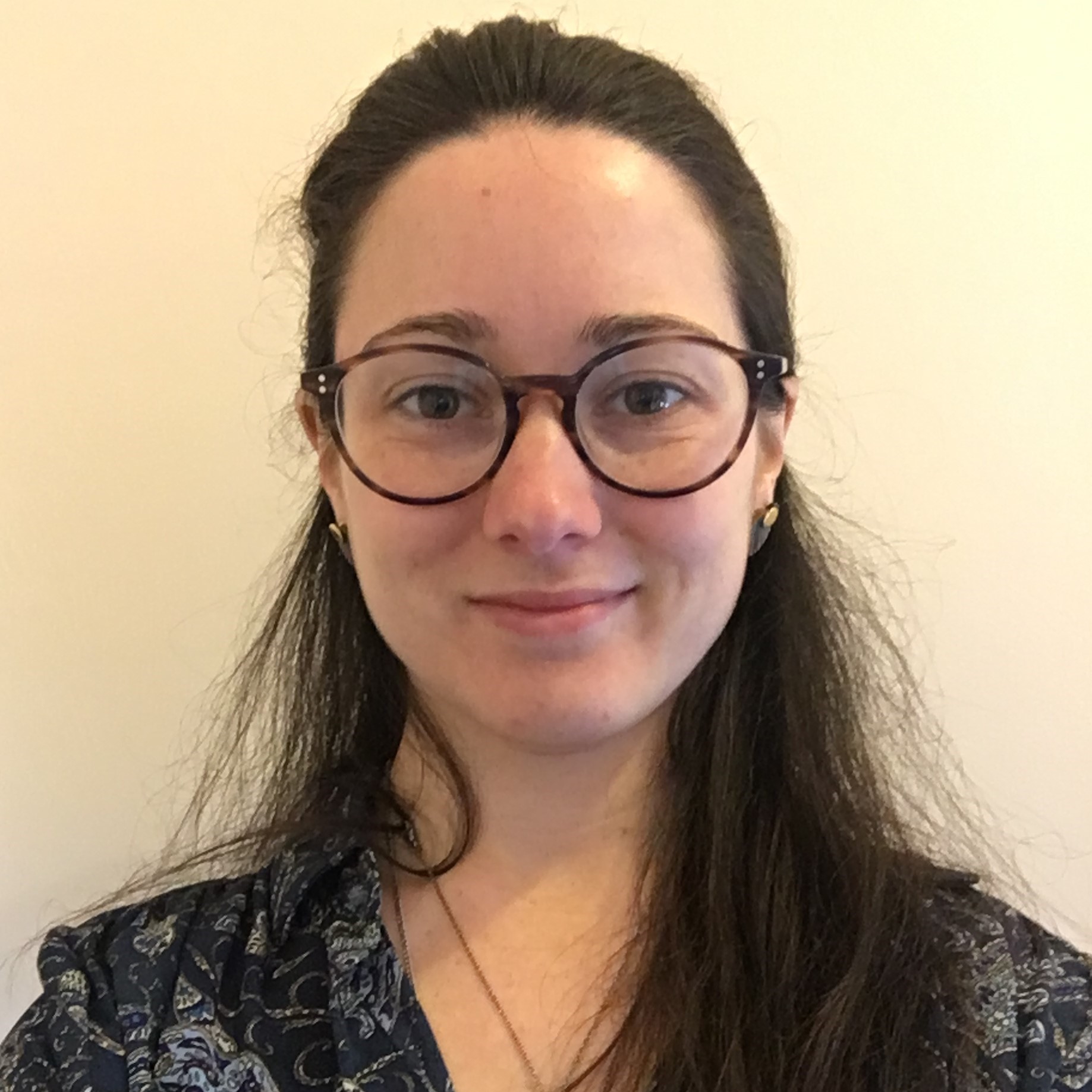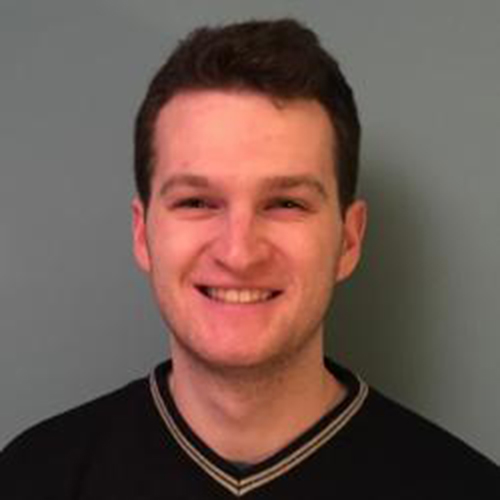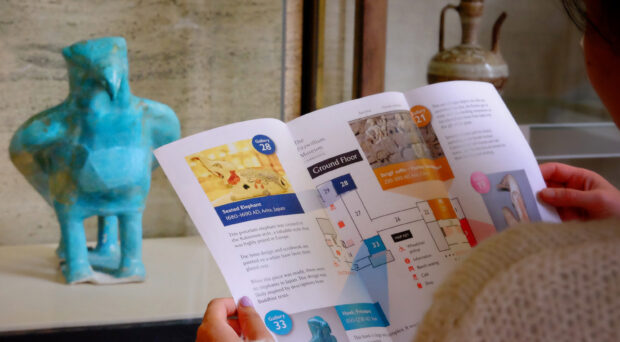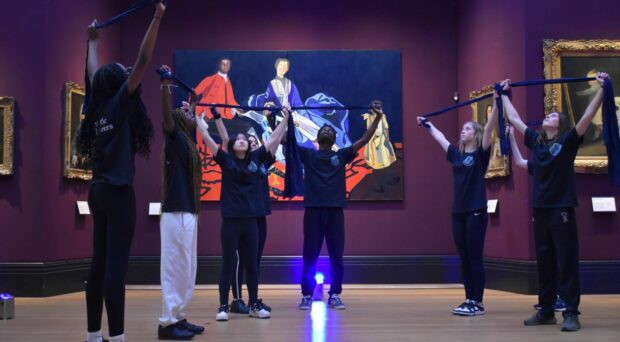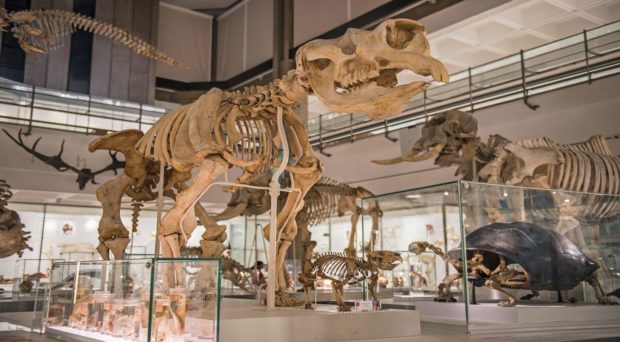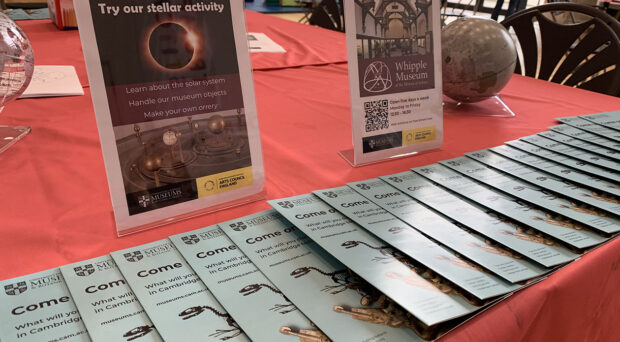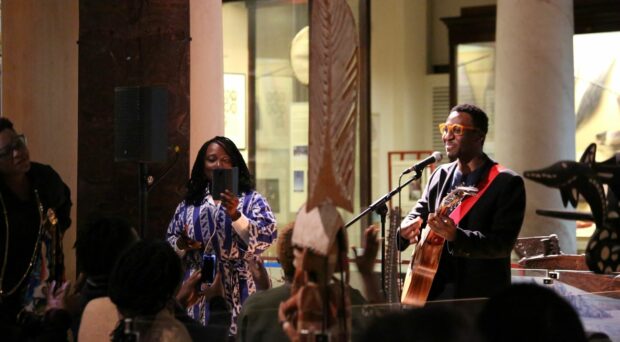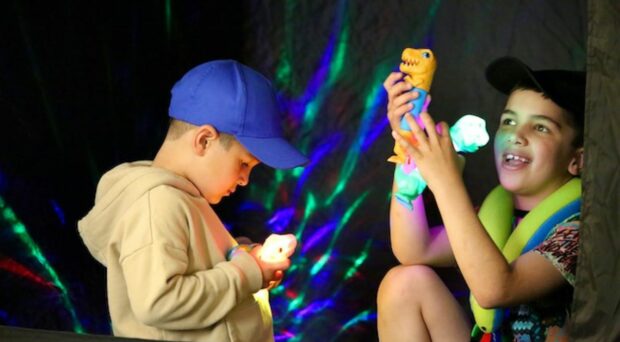With their doors closed, staff at home and social distancing the new norm, how can and how are Museums continuing to play an active and relevant role in people’s lives?
Sara Steele and Matt Hayes share their experience of developing and delivering a remote pilot session designed to engage the UCM’s Portals to the World participants; people with a dementia diagnosis or cognitive impairment and their care partners. Sara is the Museum of Zoology Learning Assistant, and Matt Hayes is a Research Assistant in the Museum and Department of Zoology.
In its tenth year, Portals is a partnership programme delivered with Dementia Compass and combines regular courses with an Alumni programme. The regularity promotes familiarity, confidence and trust in the Museums. Each session comprises of a talk, gallery exploration and a creative or object handling activity. Portals emphasizes ability over disability and provides opportunities for people to learn, share and create and to experience ‘respite together’.
Other interviews in this series: Nathan Huxtable from the Fitzwilliam Museum. Read more here.
What were the challenges you faced in moving Portals to Your Garden?
Sara:
Delivering a talk and ‘show-and-tell’ style content from our garden comes with its own challenges. Planning for the ever-reliable English weather and the equally reliable local wildlife took me back to my summer in the Keralan monsoon. I had become quite familiar with Zoom as a social tool and our garden as a filming space due to the need to create plenty of remote content.
After much deliberation, an ‘indoor-outdoor’ set-up worked best; with the ‘tech’ sitting on a table just inside the open patio doors.
Matt:
Being part of a digital Portals workshop was always going to be a challenge as communicating through a screen can be disorientating for any audience. Working alongside Dementia Compass was a great help, especially as they were able to give in-session prompts for simple changes that would make the content more accessible for our audience.
Another challenge was being outside as it meant we had to be conscious of bad weather and noise from passers-by. Therefore, we had a backup plan so that we could easily hurry inside if the elements turned against us.
How did you plan for the session content?
Sara:
Matt and I are housemates and share a garden, as well as an affinity towards insects and employment roles that require us to share our enthusiasm for the natural world.
After liaising with Ruth Clarke, UCM Inclusion Associate and Edye Hoffman from Dementia Compass we sought to use learning from Nathan’s session in The Shed while remaining parallel to the workshops held at the Museum.
I held the role of intrigued interviewer, with Matt as our subject specialist guiding us through a world of garden wildlife. From striking Peacock butterflies, to solitary bees, and our mini-pond visitors. We planned to use a variety of mediums, such as live caterpillars shown via a handheld camera or pre-recorded wildlife-camera snippets; as with any audience, the use of different resources aids in hopefully finding at least one that works for each individual.
Nathan followed the session with a pre-recorded practical art activity, guiding participants through making a postcard with a ‘movement in nature’ twist.
Matt:
Being housemates with Sara meant that we could still work together during lockdown and I benefitted hugely from her previous experience with the Portals programme.
I could develop some of the content for the session and Sara could then guide that process to make sure it was suitable for our intended audience, whilst also including her own content. Sara then worked with Edye at Dementia Compass to pull everything together.
I study insects as part of my job at the University Museum of Zoology in Cambridge and I am particularly passionate about butterflies. During recent months Sara and I have been restricted to observing wildlife from home, so we have done lots in the garden for butterflies and other species. Therefore, whilst we couldn’t visit the Museum and observe species of the past, it made sense to run a session on wildlife that we can see in gardens today.
After all the planning … how did it go?
Sara:
Having worked with Matt on a number of occasions, I had no worries about his contribution to the session. He has a talent for sharing his enthusiasm for wildlife, especially butterflies, in a relatable way.
Traditionally we tend to avoid resources that are screen-heavy when delivering to a Portals audience. This is to avoid the extra barrier of a reflective screen and lack of context for our participants. However, Edye Hoffman has been working with the group to get them settled into using Zoom (virtual meeting platform) and understanding how we will share the resources via our cameras and the ‘share screen’ function. An additional PowerPoint accompanied the usual handout to increase context between the talk, what is on the screen, and each page of the physical handout.
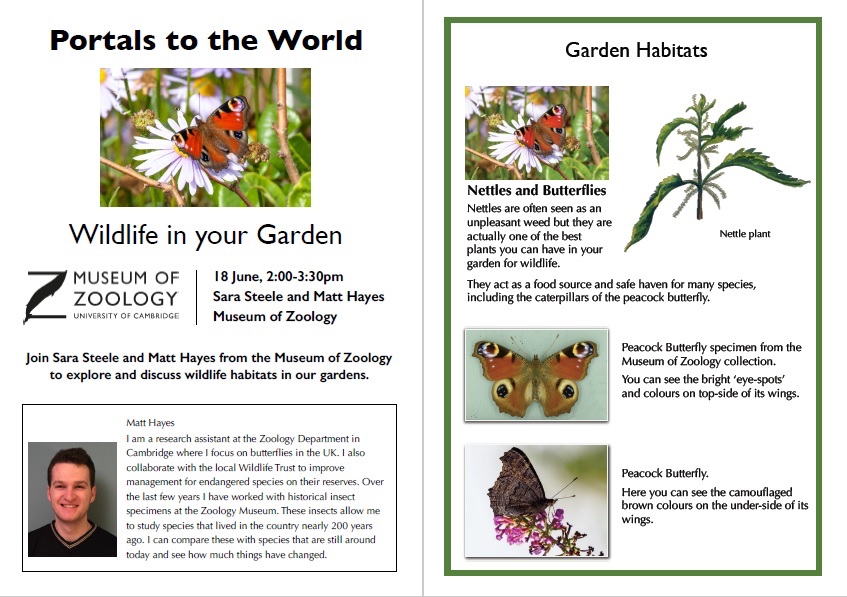
Each topic concluded with an opportunity for questions and conversation. This was my favourite part of the session – a chance to get a more informal chat going with our participants and simulate a small part of the experience that we usually enjoy in the Museum space.
Unlike the previous art-focused session, our making activity was pre-recorded and a link given to the participants so that they may do this at a time and pace that works for them. Participants had received small butterfly and bee stencils along with postcards and their session handout in the post. Nathan did an excellent job of guiding participants through creating the illusion of movement using a simple paint dragging technique. We have begun to receive some of these postcards and they are wonderful!
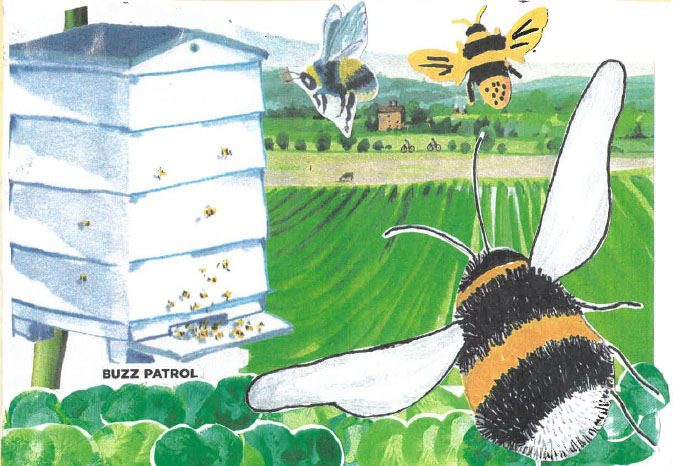
Matt:
I think it went really well. I wasn’t sure what to expect for our first digital session, and my first ever Portals session, but even through a screen I felt that the content was connecting with our audience. The question and answer slots were a particular highlight as they allowed the genuine interest of participants to shine through. We were asked lots of very insightful questions.
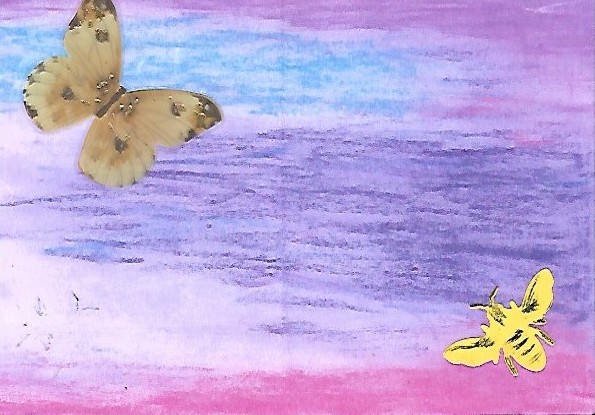
Sara did a great job of managing the tech side of things, switching screens and showing items close up. Luckily we had no major tech problems. Our pre-session run-throughs enabled us to get used to how it would play out and create the necessary off-screen notes and prompts, just in case they were needed to make the session as smooth as possible.
Have you had any feedback?
Sara:
The experience left me feeling elated. The opportunity to see and engage with the alumni group, especially in these difficult times, did what it always does; reminds me why I love my job and why museums hold an important role in society.
Receiving a ‘movement in nature’ postcard always brighten my day, and we received several messages of thanks afterwards.
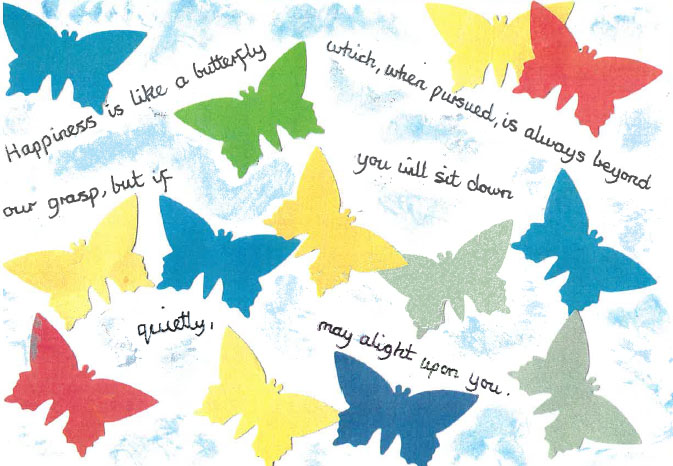
As the talk is part of a series, Ruth and Edye have been collating feedback from participants to use as learning points for the following sessions. The next is to be hosted by the Sedgwick Museum and I look forward to seeing how dinosaurs inspire more postcards.
Matt:
Yes, when all was done we could see a lot of smiling faces, which is usually a good sign, and many of the participants said thank you before we left.
Since then we have had some lovely messages forwarded onto us and seen some of the beautiful artwork that was inspired by our talk and Nathan’s workshop.
What has this challenge meant to you?
Sara:
Professionally, the experience opens up a new way of engaging with an isolated audience and builds potential for future interactions. We now have hopes for the postponed Museum of Zoology course for 2020 to be offered digitally.
Personally, it has re-ignited my creativity in producing accessible resources and workshops. We must be dynamic and use this strange time for good.
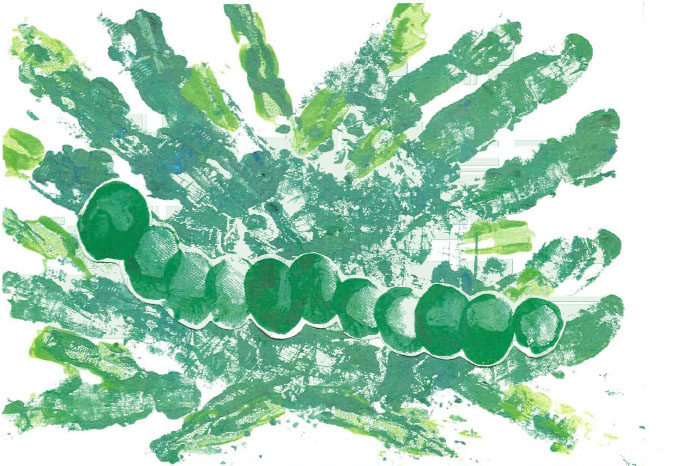
Matt:
For me it has been a highlight of recent months. Feeling isolated and unable to reach out to people in the ways we normally would has been a challenge for everyone. This digital session made me feel like we engaged with a group of people, who are at a higher risk of isolation, allowing us to connect and share a dialogue for an afternoon.
A lot of work went into making this happen but feeling as though you have made a difference to someone else’s day definitely makes it worth it.
What have you been doing since?
Sara:
The Museum of Zoology has had a busy start to the summer, having hosted a digital festival as well as creating summer activities for all ages and abilities to do at home.
We have recently returned to working alongside the Arthur Rank Hospice in planning a digital, live workshop for their patients. I will be using a lot of the learning gained from our Portals to the World alumni session in the production of this offer.
Matt:
We have been busy as ever and I have been continuing with my research project, trying to find new ways to work remotely.
As with Portals, this has been a tricky but rewarding challenge. I hope that developing ways to engage audiences with my research remotely will end up increasing its overall reach, rather than remote interactions being a temporary replacement during difficult circumstances.
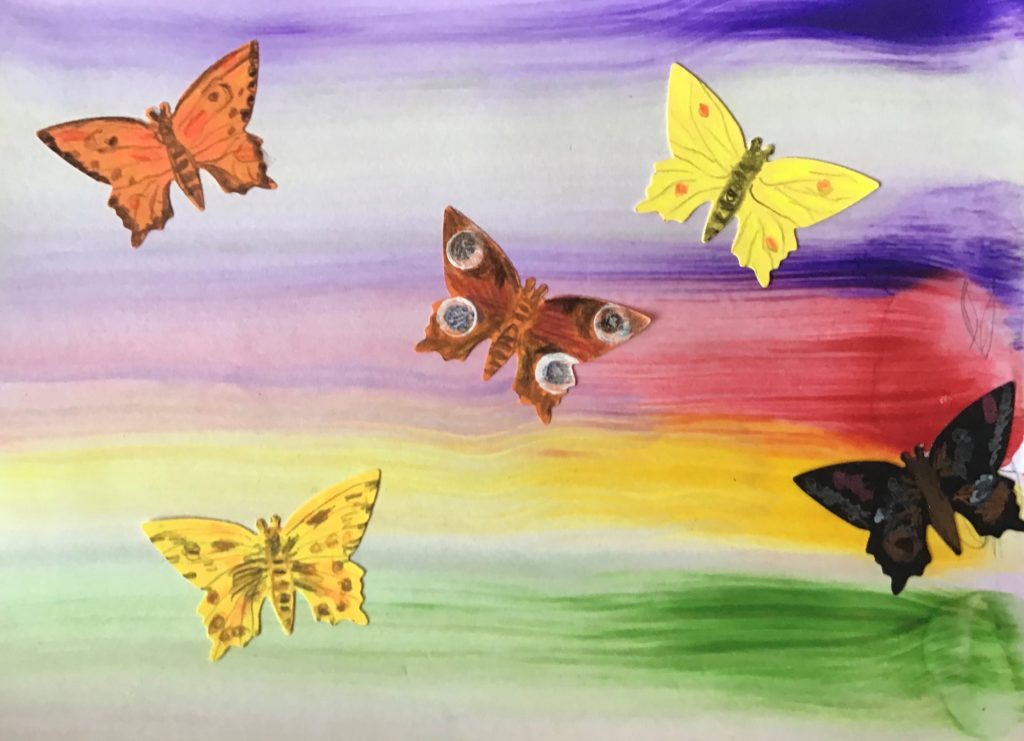
Last words
Sara:
I am looking forward to seeing where the potential built across this digital series takes us in the future!
Matt:
Being involved with my first Portals session was a great experience and I am excited to see how digital interactions can continue after current restrictions ease. I hope they will allow an even larger audience to take part and feel less isolated too.

